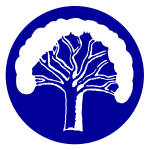Music:
‘Music is a universal language that embodies one of the highest forms of creativity.’ – The National Curriculum.
At Woodcote Primary, we aim to ensure we are providing a musical curriculum that allows children the opportunity to develop the skills outlined in the National Curriculum and their knowledge of musical cultures and developments from across the globe. Music is taught in Year 1 – 6 classes, once a week by a PPA/ Specialist teacher.
Aim:
The National curriculum for music states that the aims for Music education in Primary Schools are:
- For children to have the opportunity to perform, listen to, analysis and evaluate music from across a range of historical periods, genres, styles and traditions, including studying the works of great composers and musicians.
- Children to learn to sing, to have the opportunity to play and learn a musical instrument, to compose their own pieces of music independently and within a group and to use technology appropriately to enhance their own compositions and to learn how to edit and manipulate music.
- For children to develop an understanding of how music is created, produce and communicated using the inter-related musical dimensions: pitch, duration, dynamics, tempo, timbre, texture, structure and appropriate musical notations.
Scheme of Work/ Curriculum
To ensure high quality teaching of music, we have chosen to follow the Kapow Primary Scheme for Music whilst enhancing the learning through links with our IPC Curriculum. The Kapow Scheme for Music focuses on ensuring that all children develop the skills, knowledge and understanding needed to help them become confident performers, composers, and listeners. By exposing them to music from around the world and across generations, their knowledge is further developed and allows them to appreciate and build respect for different cultures, traditions, and communities. The scheme enables pupils to meet the end of key stage attainment targets outlined in the National curriculum as the aims of the scheme align with those in the National curriculum, including performing, listening and appraising, historical context, inter-related dimensions of music and composition.
Planning
Each half term, every year group has a topic which covers a specific theme which gives the children the opportunity to use their skills of performance (singing and playing tuned and untuned instruments), improvising and composing as well as using their critical thinking skills to respond to music across the topic and build upon their knowledge and understanding from the topic/ year before.
The learning allows for the children to be active and involved as well as providing them with the opportunity to develop their critical thinking skills, and in KS2 they are provided opportunities to reflect and respond to their own compositions. They learn how to notate their own musical compositions as well as developing an understanding of the history and cultural context of music.
This scheme also allows the children to develop skills that are transferable across other subjects including: teamwork, leadership, creative thinking, problem-solving, decision-making and presentation/ performance skills. These skills support their development as learners and can be applied into their lives beyond school.
Through the Kapow Scheme, the teacher is provided with a clear lesson plan, that provides support on how to differentiate within each lesson to further support or challenge all pupils as well as providing a list of equipment needed within each the lesson. There are clear plenaries provided for the end of the lesson to ensure an opportunity for pupils to share their learning and a list of vocabulary is provided to ensure the children are accessing and using the correct terminology within each lesson.
Assessment
Formative assessment is ongoing and is against the clear lesson objectives. At the end of the year, teachers are required to report for parent’s attainment and effort in Music.
Enrichment
To further enhance the musical enrichment at Woodcote, the children are provided with a Pupil Passport, which ensures that by the end of Key Stage 2 they should have learnt how to play an instrument and have been to the theatre to see a show.

